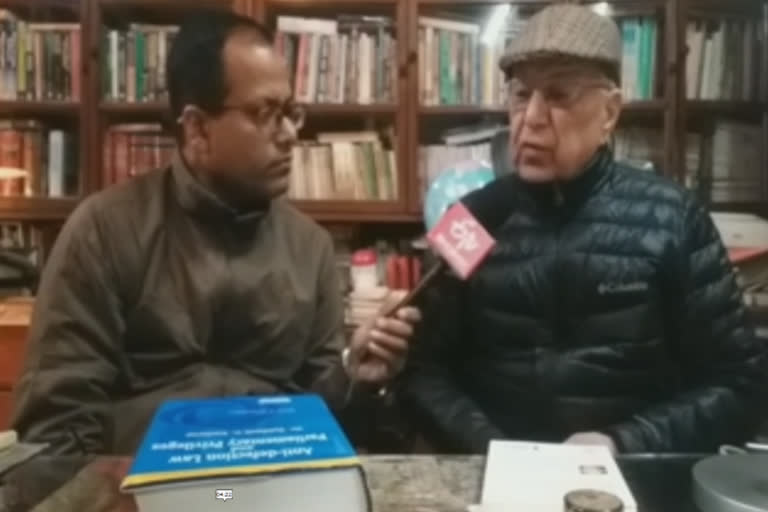New Delhi:With numerous political defections across states raising eyebrows of late, the changing of party affiliation for 'narrow political gain' has compelled the Supreme Court to intervene into the matter.
Senior constitutional expert and former secretary-general of Lok Sabha, Dr Subhas C Kashyap, however, feels that the Election Commission (EC) must be entrusted with the task of looking into the matter of defection by leaders.
Dr Subhas C Kashyap, a distinguished scholar, said that this is a serious matter and much can be said on the subject of changing party affiliation by members.
"There is no doubt that everyone including members of Parliament and members of the state legislature are entitled to act on their own benefit. Question is whether the change in party is for narrow personal self-interest, for getting ministership, or for getting monetary rewards!" he said.
In the recent past, political equations in several states including Karnataka, Goa, Manipur, followed by changing of party affiliation by legislators has created massive controversies.
"Sometime back it was told that the members were sold for a price or they were auctioned giving glaring instances of the ugly face of Indian politics and democracy," said Dr Kashyap.
Dr Kashyap said that there is, however, scope for principle change of party affiliation. "The question is whether a member elected to parliament or state legislature, is a representative of the constituency or represents a section of people or a party..." he said.
Anti defection law is based on the belief that those who contest the election on a particular party ticket are wedded through the ideology and programme of the party.
ALSO READ: Sri Lanka PM receives ceremonial reception at Rashtrapati Bhavan, meets PM Modi
"There has been serious doubt expressed in recent decades whether the party themselves are wedded to any principles or programmes, parties themselves keep changing their affiliations to ideology on the basis of convenience of the moment or even for power, parties may give up their principles," he said.
Dr Kashyap expressed apprehension that in the current format of deciding on the defection by Parliamentary or Assembly speaker or by the chairman "may be biased."
"Many years back when the first edition of my book on anti-defection law came, I had suggested that it is perhaps not very wise to entrust the judgement in connection with the disqualification of members on the ground of defection to Speakers or chairmen of the House. Because by tradition they are partymen. They themselves were elected on the party ticket and continue to be a member of the party, unlike British House of Commons, where once selected as a speaker, the member is supposed to severe his links with any political party," said Dr Kashyap.
